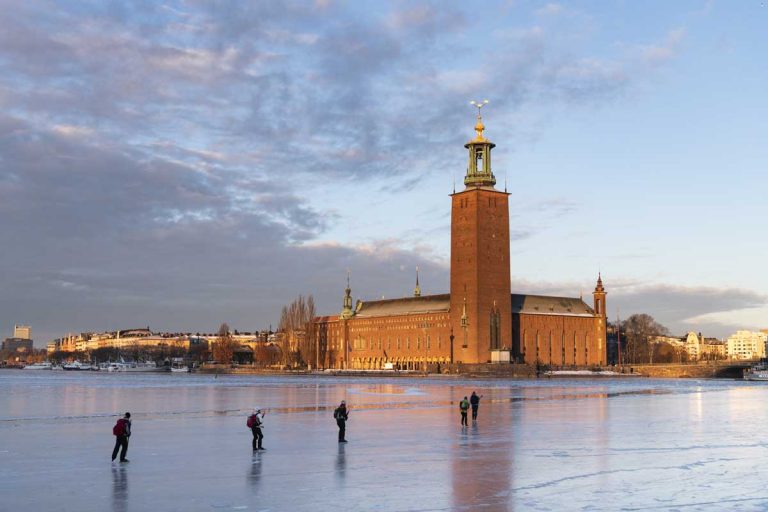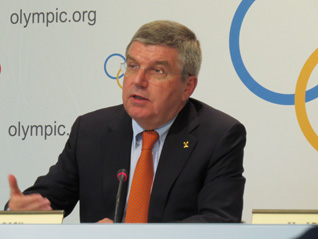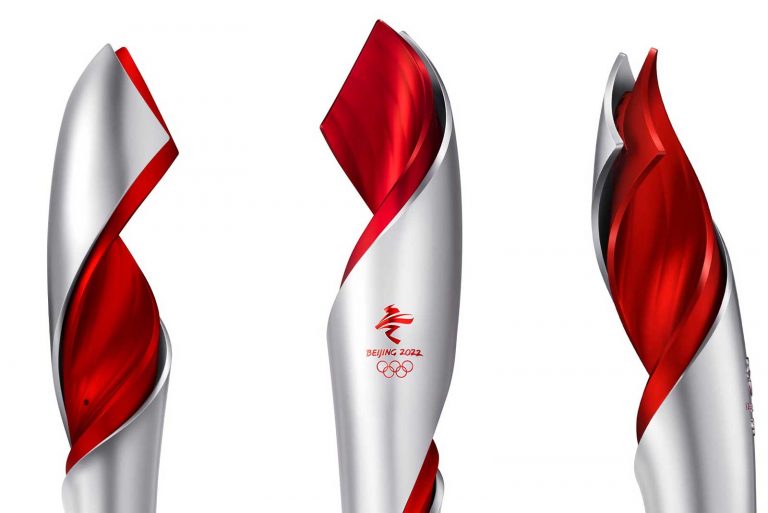A cheerful panda and a welcoming lantern child have been chosen as mascots for the Beijing 2022 Olympic and Paralympic Winter Games it was announced Tuesday at the Shougang Ice Hockey Arena in China’s capital.

Representing the Olympics, Bing Dwen Dwen the panda is said to resemble an astronaut “embracing new technologies for a future with infinite possibilities,” according to the organizing committee.
“‘Bing’ means ice and also symbolizes purity and strength, and ‘Dwen Dwen’ represents children” the International Olympic Committee (IOC) explained in a statement.
The panda is considered a Chinese national treasure, and recognized internationally as a symbol of the nation.
“Bing Dwen Dwen is encased in a full-body “shell” made of ice, and the heart shape in its left palm represents the host country’s hospitality. The bright colours of the halo around its face represent ice and snow sport tracks, signifying connectivity and advanced technologies.” – IOC
For the Paralympics that will follow, Shuey Rhon Rhon the lantern child will “welcome friends from around the world.”
“The overall design draws from traditional Chinese papercut art and Ruyi ornaments, and features doves, Beijing’s iconic Temple of Heaven, and snow to symbolize peace, friendship, and good fortune,” a Beijing 2022 statement described.
“The name expresses the hope that there would be more inclusion for people with impairments, and more dialogue and understanding between cultures of the world.”
“The Chinese lantern is a millennia-old cultural symbol associated with harvest, celebration, prosperity, and brightness. Exuding positivity, the glow emanating from its heart symbolises the inspiring warmth, friendship, courage, and perseverance of Para athletes that light up the dreams of millions every day.” – Beijing 2022
Nihao #BingDwenDwen! Let's find out how this adorable panda #mascot came to life as we count down to #Beijing2022! pic.twitter.com/rfAMd9o0pm
— Beijing 2022 (@Beijing2022) September 17, 2019
“Shuey” represents snow, the first Rhon means “to include, to tolerate” and the second Rhon means “to melt, to fuse” and “warm”.
“Everywhere you go, you can feel the excitement and the anticipation that the Olympic Winter Games Beijing 2022 are generating already,” IOC President Thomas Bach said at the unveiling ceremony.
“This demonstrates that the legacy of the Olympic Winter Games Beijing 2022, spreading the joy and benefits of sport to all Chinese people, is already taking shape.
“The launch of the mascot today will generate even more interest for these Games, especially among young people.”
“The mascots carry the enthusiasm of 1.3 billion Chinese people towards Beijing 2022 and extend our warm invitation to friends throughout the world,” Beijing Mayor Chen Jining said.
Olympic and Paralympic mascots have become important symbols at the Games, helping boost branding and marketing efforts, as well a being a key revenue driver through licensed merchandise sales.

Bing Dwen Dwen and Shuey Rhon Rhon are set to hit retail shelves soon in the form of plush toys and on printed on apparel. Closer to the Games, the iconic symbols will appear on thousands of products.
An international competition held last year produced a short list of 10 designs for consideration.
The winning designs were chosen from among over 5,800 entries from China and 35 countries around the world by teams from the Guangzhou Academy of Fine Arts and Jilin University of the Arts.


